Photographs: Munish Sharma/Reuters Shyam Saran
India is heading towards economic crisis. The eventuality can be avoided if the government takes radical reforms like it did in 1991. Also, more countries want India to succeed as China’s economic growth makes it assertive and India can leverage these sentiments in its favour.
As India celebrates its 66th year of independence, a mood of despondency fills the air - a sense that a promising journey the country embarked upon more than two decades ago has stalled and a bleak future awaits us. The India story appears to have lost its lustre.
For a time, the world seemed transfixed by India's new and unusual dynamism, and New Delhi became the indispensable destination for leaders from across the globe.
Today, instead, there is pervasive pessimism about India's prospects and disbelief over the uncanny predilection of its governing elite for scoring one own goal after another, thereby undermining national credibility both at home and abroad.
Governance is not just apathetic; it is mostly incoherent and contradictory. There are roadshows in foreign capitals to sell India as an investor's paradise. Yet, at home, India's entrepreneur class appears to have given up on the country's economic prospects.
…
A cloudy Independence Day
Photographs: Reuters
It does not seem to occur to our economic managers that it is the vote of India's domestic business and industry that carries the most credibility with their foreign counterparts.
If India's own captains of industry are reluctant to invest, why should foreign investors take this risk?
Another contradiction is apparent in the welcome mat being rolled out for foreign portfolio investment, while making it even more frustrating for those who wish to take a long-term bet on India through fixed investment.
The latter represent assets that will stay in the country and add to its productive capacity. The former is fickle and flows in and out as "hot money", creating volatility and uncertainty in our markets.
What explains this pattern of behaviour? I think India's governing class has bought into the idea of the inevitability of India's emergence as a powerful and prosperous country, irrespective of governance issues and policy choices, and unaffected by growing corruption and lack of accountability.
It believes that India's large market cannot be ignored by foreign business irrespective of the hurdles that remain. That both domestic and foreign businesses have alternative investment destinations to choose from is ignored.
…
A cloudy Independence Day
Image: Local leaders of the congress place a garland around their party chief Sonia Gandhi.Photographs: Amit Dave/Reuters
The so-called demographic dividend has been bandied about as a magic wand that shall overcome all obstacles to growth.
That the incoming generation would need education, training and skills to deliver the dividend has come as an afterthought.
When the United Progressive Alliance (UPA) won a second term in 2009, there was a rare opportunity to move forward with second-generation reforms, dispense with the politics of entitlement in favour of empowering the people of India, and build upon the inherent strengths of the country - a young and aspirational population, a thriving domestic demand-driven economy, an internationally acclaimed and dynamic entrepreneur class, and a highly innovative and creative society across the country.
India has always been a vast and vibrant laboratory for political, social and economic innovations. For every challenge, someone somewhere has an answer.
Scaling up these myriad solutions to drive the country forward is a challenge that demands leadership and governance.
Yet how quickly UPA-II has squandered its opportunities and mostly disappointed people.
…
A cloudy Independence Day
Image: Christina Christian (L), a newly married bride, casts her ballot as her husband Kinjan Tailor stands inside a polling booth.Photographs: Amit Dave/Reuters
So, what silver linings can one possibly discern even as dark clouds gather in Indian skies?
One, general elections are around the corner - with the prospect of political renewal and change.
Democracy has given the people of India a powerful instrument to bring about change and usher in a new and vigorous political leadership in tune with their aspirations and sensitive to their concerns.
Since the last elections, India's electorate has become younger and more politically aware.
The young Indian voter will play a role much more significant and perhaps decisive in these forthcoming elections than any previous one. And this can only be for the good.
…
A cloudy Independence Day
Image: Former Indian Prime Minister P.V. Narasimha Rao.Photographs: Reuters
Two, India mostly reforms through crisis, rarely by design. If the country sinks deeper into an economic and financial crisis, its leadership may be compelled to adopt far-reaching measures of reform, just as P V Narasimha Rao did after the 1991 elections.
One does not wish for a crisis; but were it to erupt, it could become a trigger for long-overdue reforms.
Three, several states in the Indian Union have become more powerful and some have thrown up leaders more attuned to the new India.
There are new templates for successful governance, which cannot but influence any incoming political dispensation in New Delhi.
This is a relatively new phenomenon. Despite the lack of direction in Delhi, some states stand out as successful models of development.
…
A cloudy Independence Day
Image: Students in school uniforms link their arms to form the flag of the Communist Party of China, in celebration of the party's upcoming 90th anniversary.Photographs: Reuters
Four, the international environment continues to be favourable to India's growth prospects.
Thanks to the anxieties generated by China's rapid rise and the recent assertiveness in its international behaviour, more countries want India to succeed, expand its capabilities, and raise its regional and global profile.
India can leverage these sentiments, in terms of expanding its strategic space, forging closer economic and security partnerships with other major countries, and seeking capital and technology to support its economic and social development.
Few major countries enjoy such advantages, but this is a window that may close abruptly if the regional and global environment changes.
…
A cloudy Independence Day
Image: India's Finance Minister Palaniappan Chidambaram speaks behind the Indian national flag.Photographs: Issei Kato/Reuters
But silver linings are just that - margins of light that hint at the brilliance of the sun that lies concealed behind the dark clouds.
It will take decisive political leadership to dispel the gathering clouds and enable India's people to draw upon their innate and acquired strengths and resume their interrupted march towards prosperity.
India will need to chart its own path to the future and not merely follow in the footsteps of countries that have gone ahead.
The signposts are there and the direction is clearly visible. At this independence anniversary, let us resolve to resume the journey to the future India deserves.
The writer, a former foreign secretary, is currently chairman, Research and Information System for Developing Countries, and senior fellow, Centre for Policy Research (New Delhi)


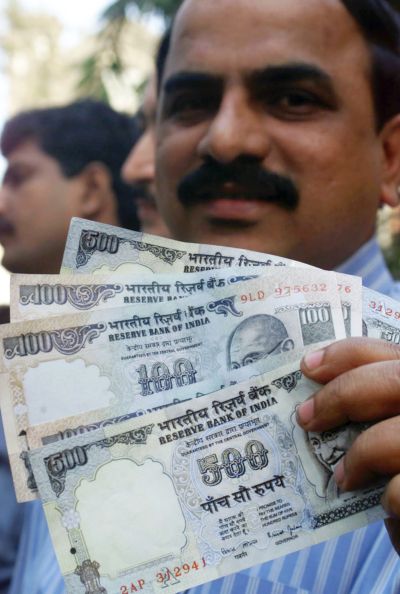
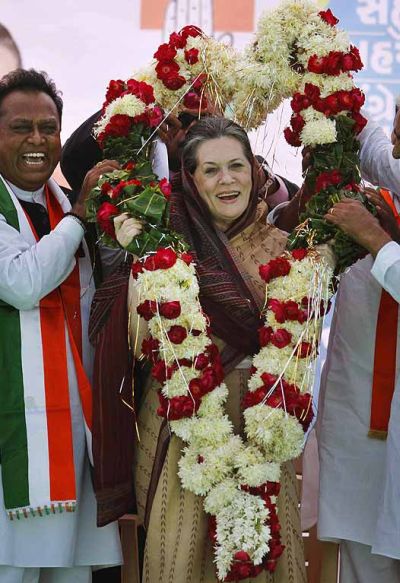
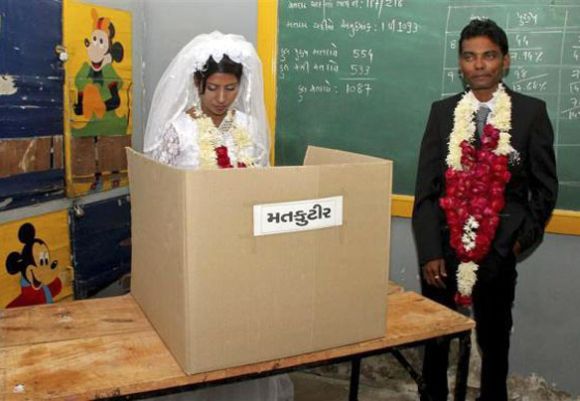
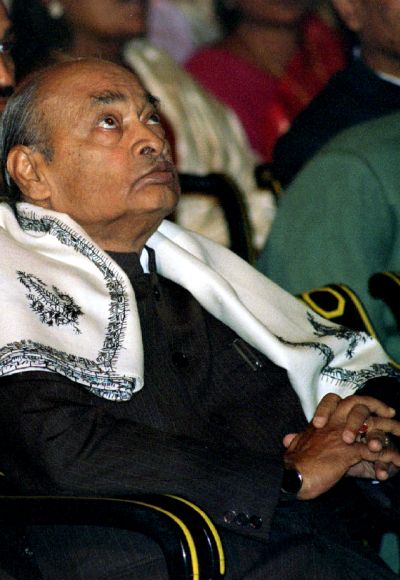
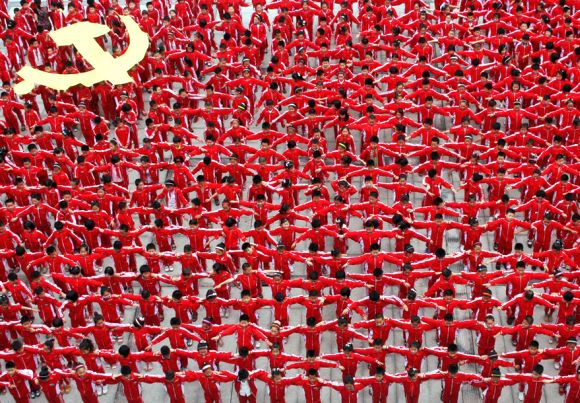
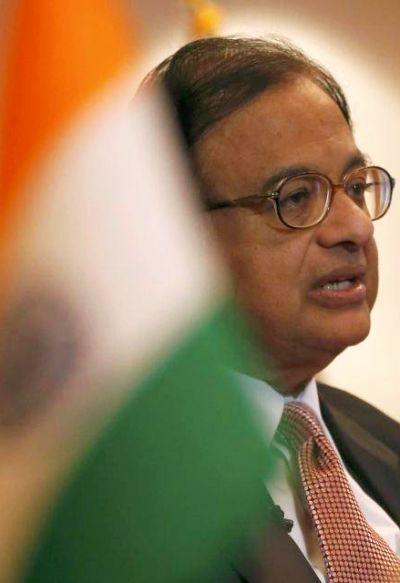

article